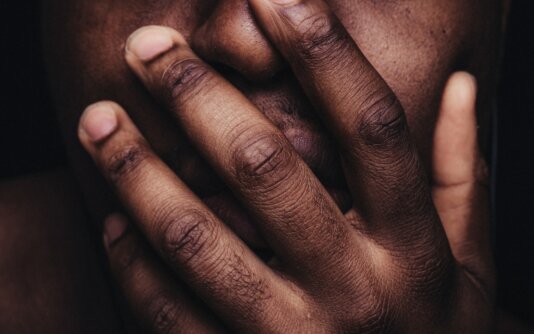- About
- Topics
- Story
- In-Depth
- Picks
- Opinion
- News
- Donate
- Signup for our newsletterOur Editors' Best Picks.Send
Read, Debate: Engage.
| February 20, 2023 | |
|---|---|
| topic: | Discrimination |
| tags: | #Russia, #racism, #human trafficking, #afro-Russians |
| located: | Russia |
| by: | Gerardo Bandera |
Of the 144 million people living in Russia, it is estimated that between 40,000 and 70,000 of them are Black or of mixed African descent.
As a large difference from the United States and European countries, this population’s presence in Russia is not due to the country’s participation in the African slave trade, to which the country was opposed. Instead, most people of African descent arrived in Russia during the Soviet era.
In the 18th and 19th centuries, Russia abstained from participating in the slave trade and colonialisation of Africa that Europeans and Americans exploited. In fact, Czar Nicholas I banned the trade of African slaves in Russia, finding it immoral (despite allowing serfdom), and when the Italian army invaded Ethiopia in 1895, Russia, finding the attack on a Christian population obscene, supplied weapons to Ethiopian troops, helping them defeat the Italian invaders.
Of the most well-known Russians of African descent is Alexander Pushkin, whose great grandfather, Abram Hannibal, was originally from present-day Cameroon, and was freed from his slavery by Czar Peter the Great, who became his patron and protector. Nevertheless, Pushkin is often depicted as a white man, and many Russians today are unaware that he was black.
Rather than being seen as sources of free labour, people from Africa were seen, through Russians’ white gaze, as 'exotic' people from distant lands, and were treated as such. In the mid-19th century, for example, Russia held various “ethnographic” exhibitions of people from different areas and tribes of Africa, which were held in zoos, theatres and circuses around the country, ostensibly to share knowledge of these cultures, but truly to make a spectacle of their difference.
This attitude changed, for several reasons, in the years following the Bolshevik revolution in 1917.
After the establishment of communism in the Soviet Union, racism and discrimination were not technically permitted as they were against Marxist values of egalitarianism. The Russian Criminal Code outlawed and persecuted racial and ethnic discrimination, although ethnic minorities, like Jews, continued to experience casual racism and pejorative remarks.
At the same time, Black people in America were being treated as second-class citizens, were denied the same rights as white people, and faced constant discrimination and oppression in daily life. The classless, racially-egalitarian Russian society was greatly attractive for African Americans, and in the 1930s, thousands of them emigrated overseas for a more peaceful life.
In this same period, several leaders of the Harlem Renaissance, like Claude Mckay and Langston Hughes, travelled to Russia, where they experienced more acceptance and opportunities as artists than in the United States.
After World War II, the USSR experienced a second influx of Black immigrants - this time from African nations due to a generous scholarship program that incentivised thousands of young Africans to study in Russia. While some of these students took advantage of the quality education and returned to their native countries, many stayed in Russia, and their descendents remain in the country today, where they face far less acceptance than their ancestors.
During the decline of the Soviet Union, when Gorbachev’s reforms permitted greater levels of free speech, critics and people who were under economic distress began to blame outsider groups for the decline of the bloc. African Russians began to experience racial prejudice and harassment from white supremacists and nationalists.
Today, however, Afro-Russians do not experience the type of systemic racism that occurs in American societies as a result of hundreds of years of oppression. Nevertheless, they experience casual racism: cab drivers and bartenders may deny them service for their appearance; people may label them as foreigners; strangers may stare at them.
While many Black Russians claim they do not experience racism, others say that Black Russians do not notice it since it is part of their everyday lives.
Annually, thousands of Africans are deceived by fraudsters into coming to Russia for false opportunities. They are promised education, jobs and even admission to football teams, only to find - once they’ve paid all their savings - that they have been scammed and are left destitute and visa-less in the country.
Since Russia punishes people for not having a legal status, these African immigrants are trapped in a country where they must work hard for very little pay to afford their legal fees and trip back home.
One of the major problems faced by black women in Russia is that of forced-prostitution. An estimated 3,000 women and girls are lured from Nigeria to Russia every year. They are promised opportunities and student visas, but are trapped into sex slavery rings.
By copying the embed code below, you agree to adhere to our republishing guidelines.
